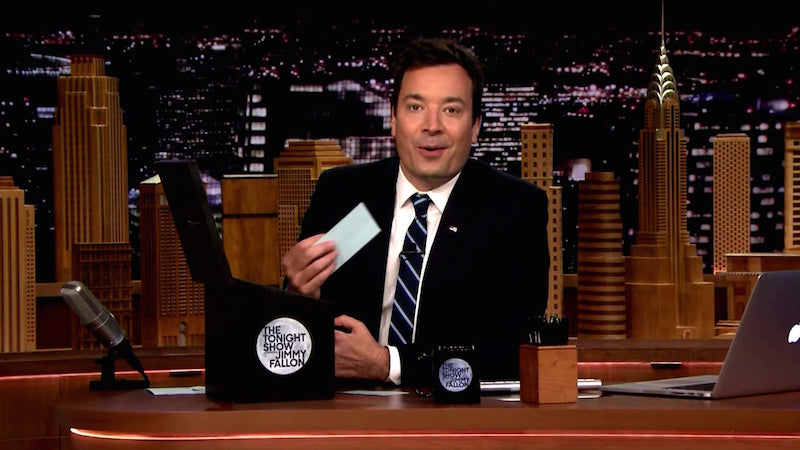Late-Night Shows are more for entertainment than factual journalism
Jimmy Fallon hosts “The Tonight Show” on NBC.
December 22, 2016
Late Night Talk Shows have been around since the late 40s, starting with “The Ed Sullivan Show” and are still getting increasingly popular. One thing has changed from the early days of late night talk shows: nowadays, people don’t watch the late night shows to get informed on current events, they watch them to have a laugh at the end of the night. Back during the early days of late night television, it was the opposite.
Instead of wanting comedy, most people wanted to know what was going on, especially during the heated times of the Cold War. As a result, the meaning of “late night show” has changed drastically and gave these programs a new audience. What used to be a formal show with questions from the audience and special guest interviews to inform the audience, is now a program filled with various skits and jokes, such as Stephen Colbert’s “Clueless Gamer” series. The host’s goal is to make people laugh and have a comical interview with a celebrity. The most successful late night show hosts have been using this new formula and are surpassing millions of views each week. According to tvbythenumbers.com, Jimmy Fallon, one of the popular host of “The Tonight Show,” surpassed 3.2 million viewers from Sept. 26 to 30 in 2016. Stephen Colbert, host of “The Colbert Report,” surpassed 2.7 million viewers during the same time frame.
Late night show hosts talk about current events, but may purposely put bias into what they say. Another difference between the hosts and news anchors, is that hosts use comedy to their advantage and do their best to make the audience laugh by the end of the program. I find this to be great because it allows people to be able to make the best out of controversial subjects, but people should know that late night show hosts are entertainers, rather than journalists.




